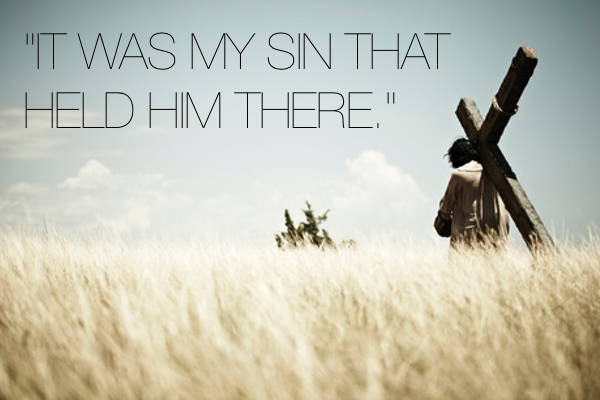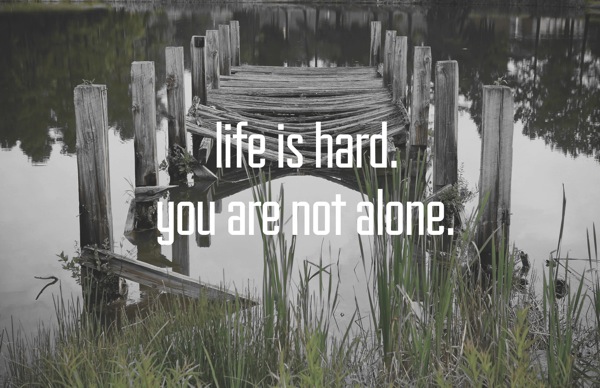 The doctrine of vocation is one of my favorite doctrines and one that I would suggest is often overlooked when it comes to significant theological concepts. While justification was certainly the central rallying point of the reformation, the doctrine of vocation was one that came with it. While justification referred to the vertical relationship between man and God, vocation referred to man’s relationship with the world around him.
The doctrine of vocation is one of my favorite doctrines and one that I would suggest is often overlooked when it comes to significant theological concepts. While justification was certainly the central rallying point of the reformation, the doctrine of vocation was one that came with it. While justification referred to the vertical relationship between man and God, vocation referred to man’s relationship with the world around him.
Because I love the doctrine of vocation, I am often reading and writing about it and have over time acquired a list of quotes that I think are significant to consider when talking about God’s calling.
18 Quotes on Vocation
1. “The maid who sweeps here kitchen is doing the will of God just as much as the monk who prays – not because she may sing a Christian hymn as she sweeps but because God loves clean floors. The Christian shoemaker does his Christian duty not by putting little crosses on the shoes, but by making good shoes, because God is interested in good craftsmanship.” - attributed to Martin Luther
2. "To pour beer for the glory of God is pretty simple: offer a smile and be friendly to whoever saunters up to the bar, give suggestions for a good draught, and when you pour tilt the glass at 45°, make sure the beer isn’t pouring too deep in the glass, bring the pint upright for the final pour and make sure the head isn’t more than an inch-deep. If you overflow, wipe the sides down and flash a smile as you slide the drink across to the customer. Say, “Cheers.” Take a swig of your own brew. Repeat." - Ken Chitwood
3.“The church’s approach to intelligent carpenter is usually confined to exhorting him not to be drunk and disorderly in his leisure hours and to come to church on Sundays. What the church should be telling him is this: That the very first demand that his religion makes upon him is that he should make good tables.” - Dorothy L Sayers
4. "What then does Christian faith say to this? It opens its eyes, looks upon all these insignificant, distasteful, and despised duties in the Spirit, and is aware that they are all adorned with divine approval as with the costliest gold and jewels…God with all his angels and creatures is smiling - not because the father (or mother) is washing diapers, but because he is doing so in Christian faith.” - Martin Luther
5. “A woman told me about getting involved in a Bible study that demanded strict commitment to the study of God’s Word. ‘You should make the Bible your number one priority,’ she was told. That meant getting up early and the very first thing in the morning doing Bible reading and having a quiet time with the Lord. She did this, but to her consternation every morning as she would start to read her Bible, the baby would wake up. She found herself resenting the interruption. Here she was, trying to spend time with God, and the baby would start fussing, demanding to be fed and distracting her attention away from spiritual things. After a while, though, she came to understand the doctrine of vocation. Taking care of her baby was what God, at that moment, was calling her to do. Being a mother and loving and serving her child was her vocation, her divine calling from the Lord. She could read the Bible later. She did not have to feel guilty that she was neglecting spiritual things; taking care of her baby is a spiritual thing!” - Gene Veith, God at Work
6. “God doesn’t need our good works, but our neighbor does.” - Gustaf Wingren
7. “The place God calls you to is the place where your deep gladness and the world’s deep hunger meet.” — Frederick Buechner, Wishful Thinking: A Theological ABC
8. “Everyone will be forgotten, nothing we do will make any difference, and all good endeavours, even the best, will come to naught. Unless there is God. If the God of the Bible exists, and there is a True Reality beneath and behind this one, and this life is not the only life, then every good endeavour, even the simplest ones, pursued in response to God's calling, can matter forever.” - Tim Keller, Every Good Endeavor
9. "When we reduce the notion of “calling” to work inside the church, we fail to equip our people to apply their Christian faith to everything they do, everywhere they are." -Tullian Tchividjian
10. "If you find yourself in a work by which you accomplish something good for God, or the holy, or yourself, but not for your neighbor alone, then you should know that that work is not a good work. For each one ought to live, speak, act, hear, suffer, and die in love and service for another, even for one's enemies, a husband for his wife and children, a wife for her husband, children for their parents, servants for their masters, masters for their servants, rulers for their subjects and subjects for their rulers, so that one's hand, mouth, eye, foot, heart and desire is for others; these are Christian works, good in nature." - Martin Luther, Adventspostille 1522
11. "God himself will milk the cows through him whose vocation that is." - Martin Luther
12. "When I go into a restaurant, the waitress who brings me my meal, the cook in the back who prepared it, the delivery men, the wholesalers, the workers in the food-processing factories, the butchers, the farmers, the ranchers, and everyone else in the economic food chain are all being used by God to “give me this day my daily bread.”" - Gene Veith
13. "All our work in the field, in the garden, in the city, in the home, in struggle, in government-to what does it all amount before God except child's play, by means of which God is pleased to give his gifts in the field, at home, and everywhere? These are the masks of our Lord God, behind which he wants to be hidden and to do all things." - Martin Luther
14. "In the long term I think being a preacher, missionary, or leading a Bible study group in many ways is easier. There is a certain spiritual glamour in doing it, and what we should be doing each day is easier to discern more black and white, not so gray. It is often hard to get Christians to see that God is willing not just to use men and women in ministry, but in law, in medicine, in business, in the arts. This is the great shortfall today.” - Dick Lucas
15. "You have worth apart from your work and that frees you to work for all that it is worth." - Matt Popovits
16. "Work is not primarily a thing one does to live but the thing one lives to do. It is, or it should be, the full expression of the worker’s faculties, the thing in which he finds spiritual, mental and bodily satisfaction, and the medium in which he offers himself to God."—Dorothy Sayers
17. "The book of Genesis leaves us with a striking truth-work was part of paradise." - Tim Keller, Every Good Endeavor
18. "God is busy about his work in the midst of your work whether you realize it or not. The laundry, the spreadsheets, the phone calls, and the cups of coffee are all deeply spiritual because God is at work in the world. He is serving your family, your coworkers, and your community through the work you do. God is at work providing “daily bread” through the work that you do, no matter what that work is.” - my guest post at Liberate.org
Do you have any other favorites on the topic of vocation? What are they?


 “Preach the Gospel; use words if necessary.” -
“Preach the Gospel; use words if necessary.” - 
 People leave churches for all kinds of reasons. Some of the reasons are good and other times…not so good. Sometimes the reasoning stems from a disagreement in doctrine, other times it stems from a ministry philosophy, and others it simply comes from a preference of style.
People leave churches for all kinds of reasons. Some of the reasons are good and other times…not so good. Sometimes the reasoning stems from a disagreement in doctrine, other times it stems from a ministry philosophy, and others it simply comes from a preference of style.

 How would you describe the
How would you describe the  Feelings win in our culture. We do things because of the way it makes us feel. We buy things because of how it makes us feel, and we even believe things simply because of how it makes us feel. We live in a world that wants
Feelings win in our culture. We do things because of the way it makes us feel. We buy things because of how it makes us feel, and we even believe things simply because of how it makes us feel. We live in a world that wants 



 In the words of the classic television show,
In the words of the classic television show,  We live in a
We live in a